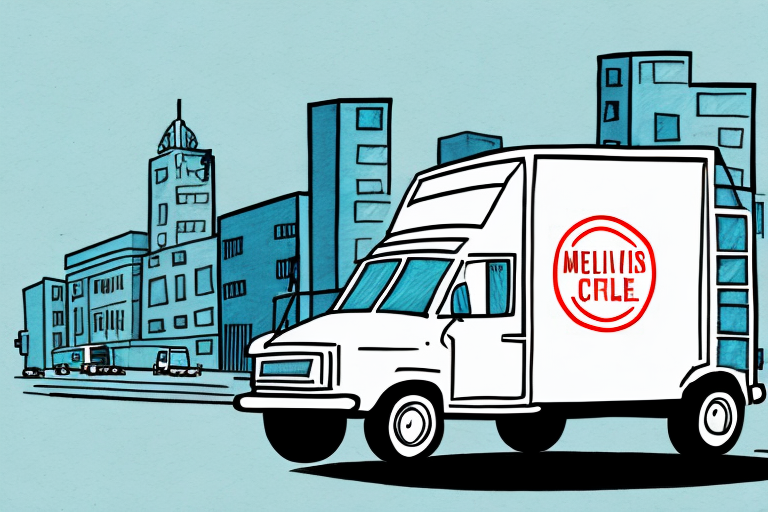The Benefits and Opportunities of Starting an Independent Courier Service
The courier industry continues to experience robust growth, driven by the surge in e-commerce and the increasing demand for rapid delivery services. Starting your own independent courier service presents numerous advantages:
- Low Startup Costs: Compared to many other businesses, the initial investment required to start a courier service is relatively low.
- Flexible Work Hours: You have the autonomy to set your own schedule, allowing for a better work-life balance.
- High Demand: The explosion of online shopping has significantly boosted the need for reliable courier services.
- Low Overhead Costs: Operating without a physical storefront reduces expenses, making it feasible to start from home.
Moreover, being an independent courier allows you to have complete control over your business operations, including the types of deliveries you handle, the areas you serve, and the clients you collaborate with. This level of control can lead to higher job satisfaction and business success.
Strategic Planning for Your Courier Business
Conducting Market Research
Thorough market research is essential to determine the viability of your courier service in your chosen area. Key factors to evaluate include:
- Target Market Size: Assess the demand for courier services in your locality.
- Competition: Analyze the number and strength of existing courier providers.
- Pricing Strategies: Understand how competitors price their services to identify opportunities for competitive pricing.
- Client Delivery Needs: Identify the specific delivery requirements of potential clients, whether businesses or individuals.
Understanding the demographics and current trends, such as the rise in same-day or next-day delivery preferences, will help tailor your services to meet market demands effectively. According to a Statista report, e-commerce sales worldwide are projected to reach $6.54 trillion by 2023, underscoring the growing need for efficient courier services.
Developing Your Business Plan and Budget
Creating a comprehensive business plan is crucial for outlining your business objectives, services offered, target market, pricing models, and marketing strategies. A well-structured budget should detail all expected expenses, including:
- Equipment and supplies
- Licensing fees
- Marketing and advertising costs
- Operational expenses
A robust business plan not only serves as a roadmap for your business growth but also helps in securing financing if needed. Regularly updating your business plan and budget will ensure that your courier service adapts to changing market conditions and continues to thrive.
Legal and Operational Setup
Choosing the Right Business Structure
Selecting an appropriate business structure is fundamental, as it affects your taxes, liability, and operational flexibility. Common structures include:
- Sole Proprietorship: Simplest form, but with personal liability for business debts.
- Partnership: Shared responsibility and profits with partners.
- Limited Liability Company (LLC): Offers liability protection without the complexities of a corporation.
- Corporation: Provides the most liability protection but involves more regulatory requirements.
Consulting with a business attorney or accountant can help you determine the best structure based on your specific needs and long-term goals.
Registering Your Business and Obtaining Licenses
Compliance with legal requirements is mandatory when starting a courier service. Necessary steps include:
- Registering your business name with the appropriate government authorities.
- Obtaining a Tax Identification Number (TIN) for tax purposes.
- Securing a Commercial Driver's License (CDL) if you plan to operate larger vehicles.
Regulations may vary by location, so it’s important to consult local government websites or legal resources to ensure all necessary permits and licenses are acquired. The U.S. Small Business Administration provides comprehensive guidelines on required licenses and permits.
Operational Excellence: Suppliers, Equipment, and Staffing
Finding Reliable Suppliers and Equipment Vendors
Reliable suppliers and quality equipment are the backbone of an efficient courier service. Essential equipment includes:
- Delivery vehicles
- Shipping boxes and packaging materials
- Tracking systems
- Hand trucks and other delivery tools
When selecting suppliers, consider factors such as price, quality, and reliability. Building strong relationships with reputable suppliers ensures that you have consistent access to the necessary resources to maintain service quality.
Hiring the Right Team
The success of your courier service largely depends on your employees or independent contractors. Key considerations when hiring include:
- Experience: Prior experience in delivery services can enhance efficiency and reliability.
- Punctuality and Professionalism: Couriers represent your business, making these traits essential.
- Local Knowledge: Familiarity with the delivery area can improve route efficiency and customer satisfaction.
Establishing clear communication channels and setting performance expectations are vital for maintaining high service standards. Platforms like Upwork can be useful for finding qualified freelancers to support your operations.
Marketing and Client Acquisition Strategies
Developing Effective Marketing Strategies
Marketing is crucial for attracting and retaining clients. Effective strategies include:
- Website Development: A professional website showcases your services, pricing, and contact information.
- Social Media Marketing: Utilizing platforms like Facebook, Instagram, and LinkedIn to reach potential clients.
- Targeted Advertising: Online ads can help target specific demographics and geographic areas.
- Networking: Building relationships with local businesses can lead to referrals and partnerships.
According to the Digital Doughnut, businesses that invest in online marketing are 50% more likely to see increased customer engagement and sales growth.
Building Strong Client Relationships
Establishing and maintaining strong relationships with clients is key to long-term success. Strategies include:
- High-Quality Service: Ensure timely and accurate deliveries to build trust.
- Personalized Attention: Tailor your services to meet the specific needs of each client.
- Consistent Communication: Keep clients informed about their deliveries and address any concerns promptly.
Providing exceptional customer service can lead to positive word-of-mouth referrals, which are invaluable for growing your client base.
Financial Management and Business Growth
Managing Finances and Cash Flow
Effective financial management is essential for sustaining and growing your courier service. Key practices include:
- Accounting Software: Tools like QuickBooks can help track expenses, income, and generate financial reports.
- Separate Business Accounts: Maintaining separate bank accounts for business and personal finances simplifies accounting and tax preparation.
- Budgeting: Regularly review and adjust your budget to align with business performance and goals.
According to Forbes, small businesses that effectively manage their cash flow are 30% more likely to achieve sustained growth.
Scaling and Expanding Your Courier Service
Once your courier service is established, you may consider scaling your operations to increase revenue and market reach. Strategies for growth include:
- Expanding Service Offerings: Introduce new delivery options such as same-day or overnight services.
- Geographical Expansion: Enter new cities or regions to reach a broader customer base.
- Diversifying Customer Base: Target different industries or market segments to reduce dependency on a single client type.
By strategically expanding your services and reach, you can enhance your business’s profitability and resilience against market fluctuations.
Preparing for Challenges and Ensuring Sustainability
Handling Potential Legal and Economic Challenges
Running a courier service involves navigating various challenges, including legal issues and economic downturns. To mitigate risks:
- Legal Compliance: Stay updated with local and federal regulations to avoid legal complications.
- Insurance: Obtain appropriate insurance coverage to protect against liabilities.
- Contingency Planning: Develop plans to address unforeseen events such as natural disasters or economic recessions.
Consulting with legal and financial advisors can provide guidance on creating effective risk management strategies.
Learning from Success Stories
Studying successful independent courier services can provide valuable insights and inspiration. Key takeaways from industry leaders include:
- Innovative Use of Technology: Implementing advanced tracking and routing systems to enhance efficiency.
- Customer-Centric Approaches: Focusing on personalized services and exceptional customer support.
- Scalability: Building a scalable business model that can adapt to growing demands and market changes.
Learning from the strategies and practices of established courier services can help you refine your own business model and achieve sustained success.
Conclusion: Embarking on Your Entrepreneurial Journey with Confidence
Launching an independent courier service offers a promising entrepreneurial opportunity in a thriving industry. By meticulously planning, adhering to legal requirements, building a strong team, implementing effective marketing strategies, and managing finances wisely, you can establish a successful and sustainable courier business.
Remember, entrepreneurship requires dedication, adaptability, and continuous learning. With the right approach and commitment, your independent courier service can thrive and expand, fulfilling your entrepreneurial aspirations.



















